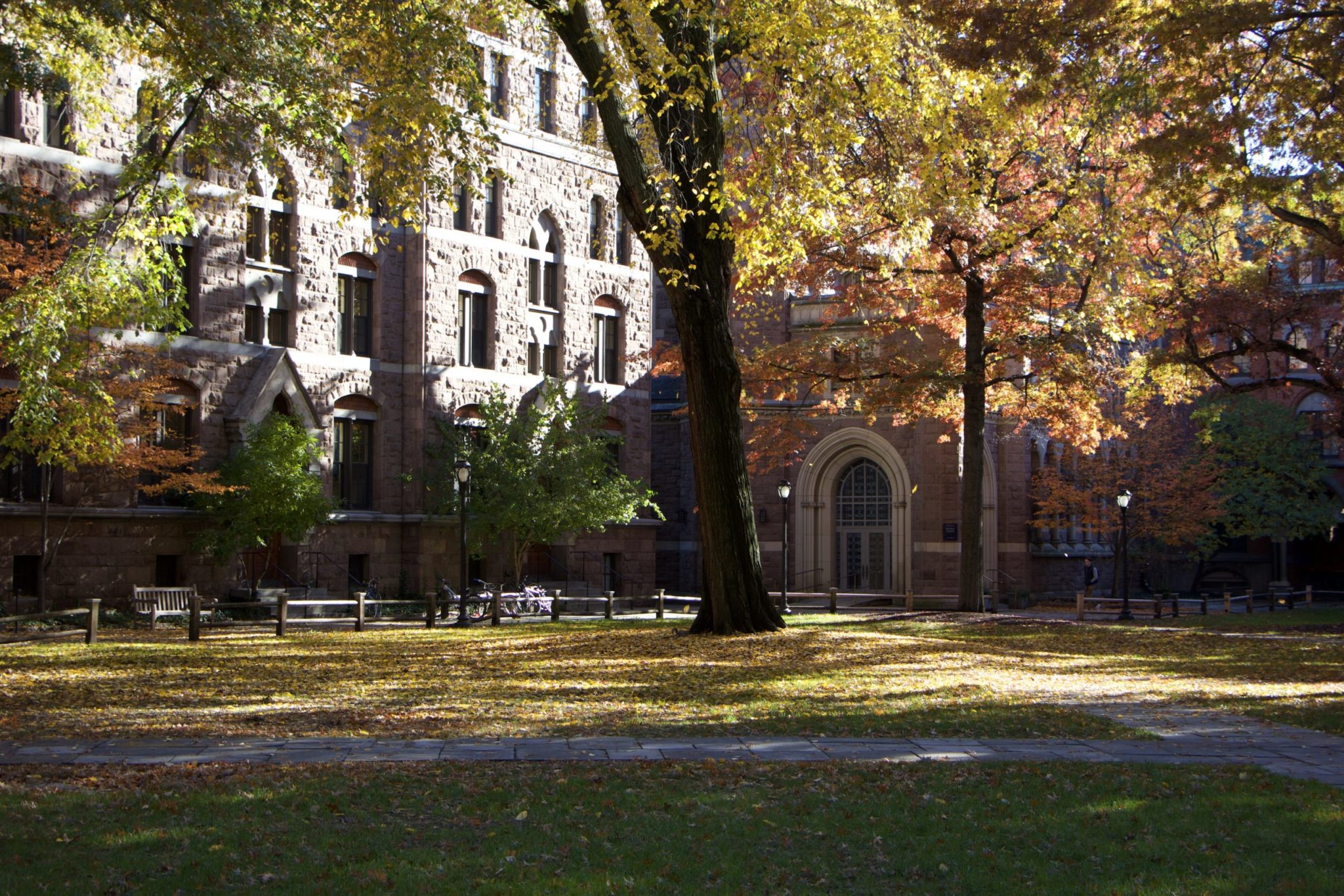Multiple Yale College classes move outdoors for increased pandemic protection
In light of the COVID-19 pandemic, some instructors have opted to teach classes outside.

Logan Howard, Contributing Photographer
As the COVID-19 pandemic continues, some Yale College instructors have opted to reduce the pandemic’s spread and embrace the fall weather, moving their lessons beyond the classroom and out of doors.
Since the start of the fall semester on Sept. 1, most classes have operated in person. Students have gathered in classrooms and lecture halls alongside their peers and instructors, following mask mandates and other safety guidelines implemented by the University. However, several instructors have chosen to teach seminars outside instead of in their assigned classrooms, citing reasons such as safety concerns and desiring a maskless classroom environment and a change in setting.
“People were engaged, and I think the conversation went well,” English professor Craig Eklund said. “I think the open-aired atmosphere creates a different mood, so maybe a slightly different conversation than what we would have inside the class.”
According to Elkund, there were two main reasons behind the change in location for his English 120 class. He believes that masks make it more difficult for him to engage with students, as he is sometimes unable to gauge class engagement or pinpoint who is speaking. Additionally, he also appreciates the change in atmosphere that outdoor classes bring.
He decided to hold class on the Old Campus courtyard, rather than in Linsly-Chittenden Hall, so that students could remove their masks. He ultimately found that the outdoor setting was conducive to learning and hopes to continue this practice in the future.
Elsie Harrington ’25, who usually attends her first-year seminar “Thinking about History” on the Pauli Murray College porch, believes her instructor initially opted to hold classes outside due to COVID-19 safety concerns arising from the original small classroom space. Nonetheless, even after the class was reassigned to a larger room, they continued to mostly meet outdoors.
“It’s nice to be able to exist in outdoor air … it’s a nice little break in the middle of the day, and it doesn’t feel like a stifling class,” Harrington said.
Eve Houghton ’17 GRD ’24, who teaches “(In)Authenticity in Reality TV,” first decided to conduct her class outdoors in order to allow students to safely connect with one another without masks.
Houghton enjoys teaching in the Davenport and Branford courtyards, as she believes the outdoor environment is comfortable and engaging for her students, she said. She hopes to continue conducting class outdoors in future semesters.
“[Outdoor learning] breaks down hierarchies and creates a sense of community and ease in each other’s company,” Houghton wrote in an email to the News. “It combines intellectual work with a feeling of leisure, of having stretches of time to spend sitting outside in the sun.”
Despite the pleasant atmosphere, students and instructors in outdoor classes have faced several challenges, including difficulty communicating, a lack of access to technology and adverse weather.
Harrington said her class frequently runs into distractions when conducted outside.
“We’re just all at a long table, and it’s difficult to see each other and hear the other end of the table,” Harrington said. “It’s more difficult to focus on the class when you’re not in a classroom that is primed for discussion.”
Harrington has also experienced weather issues like rain storms during her outdoor classes and said that the students all “got wet.”
Eklund stated that while outdoor classes worked well with his discussion-based English 120 class, he finds it less feasible when lessons require access to technology.
“The problem is the other class I teach, we often need technology,” Eklund said. “I’ll often need the screen up there.”
As the winter months approach, colder temperatures may prevent classes from moving outside. In preparation for this, Eklund proposed giving students advance notice to bring coats to class. However, while this course of action may provide a temporary solution to adverse weather, Eklund acknowledges that “at a certain point, it’s just totally unfeasible.”
The fall semester will end on Dec. 22.







